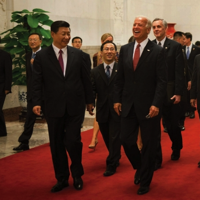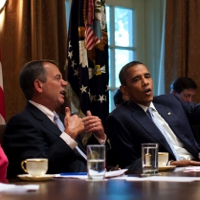
Editor’s note: This is the second of a two-part series. Part I examined the need for a global economic grand bargain. Part II examines what such an economic grand bargain might look like. BEIJING — The recent market correction and an increasingly bleak economic outlook have sharpened the case for a G-20 economic grand bargain. China has the capacity to take a lead in any such arrangement, using its $3 trillion foreign exchange reserves as bargaining chips for reshaping the global economy to better suit its interests. This could form the bedrock of broad-based and coordinated policy action to address […]





